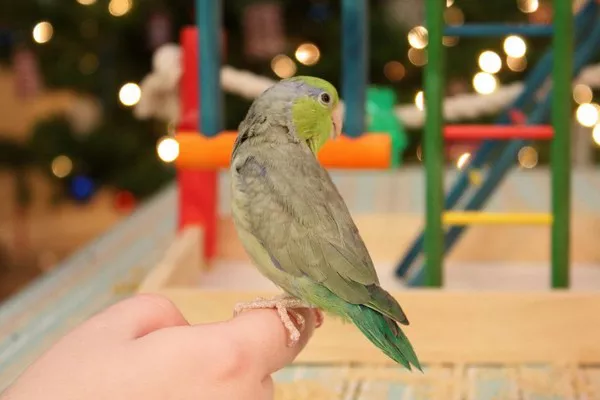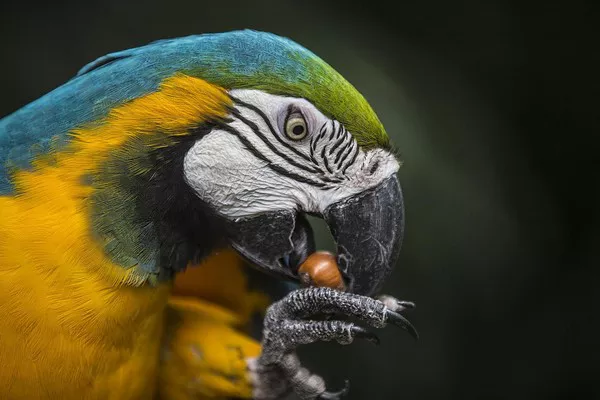Sun Conures, with their vibrant plumage and engaging personalities, are among the most popular pet parrots. However, their loud and frequent screaming can be a challenging aspect of their behavior. This article aims to explore the reasons behind your Sun Conure’s screaming and offer practical solutions to help manage this issue effectively.
Understanding Sun Conure Behavior: An Overview
Before addressing the screaming, it’s essential to understand the natural behavior of Sun Conures. These birds are known for their vocalizations, which serve various functions in the wild. Recognizing their communication methods can help you address their needs more effectively.
Natural Vocalization Patterns
In their natural habitat, Sun Conures use vocalizations to communicate with their flock. These sounds help them alert others to potential dangers, attract mates, or coordinate activities. Their screams are not necessarily a sign of distress but rather a part of their social interactions.
Understanding that vocalization is a fundamental part of their behavior can help you interpret why your pet might be loud. While it’s normal for Sun Conures to vocalize, excessive screaming can be a sign of underlying issues that need to be addressed.
Social and Emotional Needs
Sun Conures are highly social birds that thrive on interaction and mental stimulation. In the wild, they live in large, active flocks, so being alone or isolated can lead to boredom and frustration. This need for social interaction is a significant factor in their vocal behavior.
If your Sun Conure is not getting enough social interaction or mental stimulation, it might resort to screaming as a way to express its discontent or seek attention. Understanding this need can help you provide better care and reduce unwanted vocalizations.
Common Reasons for Excessive Screaming
Several factors can contribute to excessive screaming in Sun Conures. Identifying the root cause is crucial for finding an effective solution. Let’s explore the most common reasons behind this behavior.
Attention-Seeking Behavior
One of the primary reasons for screaming is attention-seeking. Sun Conures are highly social and crave interaction with their owners. If they feel ignored or neglected, they might use loud vocalizations to get your attention.
Immediate Attention: If your Sun Conure has learned that screaming results in immediate attention, even if it’s negative, they may continue this behavior to get what they want.
Loneliness: Spending long periods alone can lead to boredom and a desire for social interaction. If your bird is left alone for extended periods, it might scream as a way to express its need for companionship.
Hunger or Thirst
Another common reason for screaming is hunger or thirst. Sun Conures may become vocal if they are not fed on time or if their water supply is inadequate.
Inconsistent Feeding Schedule: If their feeding schedule is irregular, they might scream to alert you to their hunger. Establishing a consistent feeding routine can help alleviate this issue.
Empty Water Bowl: Ensuring that your Sun Conure always has access to fresh water is essential. If their water bowl is empty or if they are not drinking enough, they might scream to let you know.
Environmental Changes
Sun Conures are sensitive to changes in their environment. Any alteration in their surroundings, such as moving to a new home or rearranging their cage, can cause stress and result in increased vocalizations.
New Surroundings: If you’ve recently moved or redecorated, your Sun Conure might be reacting to the change. Birds often scream when they are anxious or unsure about their new environment.
Loud Noises: Sudden loud noises or disruptions can startle your Sun Conure and lead to screaming. Reducing exposure to loud sounds and creating a calm environment can help minimize this behavior.
Health Issues
Sometimes, excessive screaming can be a sign of health problems. If your Sun Conure is suddenly more vocal than usual, it’s essential to consider potential health issues.
Pain or Discomfort: If your bird is in pain or discomfort, it might vocalize more frequently. Look for other signs of illness, such as changes in appetite or behavior, and consult a veterinarian if necessary.
Infections or Injuries: Infections or injuries can cause your Sun Conure to be more vocal. Regular health check-ups can help detect and address any potential issues early.
How to Manage and Reduce Excessive Screaming
Once you’ve identified the potential causes of your Sun Conure’s screaming, you can take steps to manage and reduce this behavior. Here are some practical strategies to help address the issue.
Increase Social Interaction
Given that Sun Conures are highly social birds, increasing their interaction with you can help reduce screaming.
Daily Interaction: Spend quality time with your Sun Conure every day. Engage in activities such as talking, playing, and training to keep them mentally stimulated and emotionally satisfied.
Companionship: If possible, consider getting a second bird to provide companionship. However, introducing a new bird should be done carefully to ensure that both birds get along well.
Establish a Routine
Establishing a consistent daily routine can help your Sun Conure feel more secure and reduce anxiety-induced screaming.
Feeding Schedule: Stick to a regular feeding schedule to avoid hunger-induced vocalizations. Ensure that your Sun Conure always has access to fresh food and water.
Sleep Schedule: Provide a consistent sleep schedule by covering the cage at night and ensuring they get adequate rest. A well-rested bird is less likely to become irritable and scream excessively.
Create a Stimulating Environment
A stimulating environment can keep your Sun Conure entertained and reduce boredom-related screaming.
Toys and Enrichment: Provide a variety of toys, perches, and enrichment activities to keep your bird engaged. Rotate toys regularly to maintain their interest.
Climbing and Exploration: Sun Conures enjoy climbing and exploring their surroundings. Consider adding climbing structures, play gyms, and safe objects to their cage to encourage activity.
See Also: Why Is My Sun Conure Sneezing?
Address Environmental Stressors
Reducing stress in your Sun Conure’s environment can help manage excessive screaming.
Minimize Noise: Create a quiet and calm environment by minimizing loud noises and disruptions. Place the cage in a location where your bird can feel safe and secure.
Gradual Changes: If you need to make changes to your Sun Conure’s environment, do so gradually to minimize stress. Allow your bird to acclimate to new surroundings or items at its own pace.
Health Check-Up
If you suspect that your Sun Conure’s screaming may be due to health issues, schedule a visit with an avian veterinarian.
Regular Check-Ups: Regular health check-ups can help identify and address any underlying health problems. Discuss any changes in behavior or vocalization with your vet to determine if medical issues are a factor.
Observe Behavior: Pay attention to any additional symptoms or changes in behavior that might indicate a health problem. Early intervention can prevent more serious issues from developing.
Training Techniques to Reduce Screaming
Training your Sun Conure to modify its screaming behavior can be effective with patience and consistency. Here are some training techniques that can help:
Positive Reinforcement
Using positive reinforcement can encourage your Sun Conure to adopt quieter behaviors.
Reward Quiet Behavior: When your Sun Conure is quiet, offer a treat or praise to reinforce the desired behavior. This helps them associate quietness with positive outcomes.
Ignore Excessive Screaming: Avoid giving attention when your Sun Conure is screaming excessively. Instead, wait until they are calm before engaging with them. This teaches them that screaming does not result in attention.
Teach Quiet Commands
Teaching your Sun Conure specific commands can help manage their vocalizations.
Training Sessions: Use short training sessions to teach your Sun Conure commands like “quiet” or “enough.” Reward them with treats and praise when they respond correctly.
Consistency: Be consistent with your commands and rewards. Repetition and consistency are key to successful training.
Distraction Techniques
Distraction can be an effective way to redirect your Sun Conure’s attention away from screaming.
Interactive Toys: Provide interactive toys or puzzles to keep your Sun Conure occupied and mentally stimulated. This can help reduce boredom and excessive vocalizations.
Training Games: Engage your Sun Conure in training games that challenge their intellect and encourage positive behaviors.
Conclusion
Understanding the reasons behind your Sun Conure’s screaming and addressing their needs is crucial for maintaining a harmonious relationship with your pet. By increasing social interaction, establishing a routine, creating a stimulating environment, and addressing any potential health issues, you can effectively manage and reduce excessive vocalizations.
Training techniques such as positive reinforcement and distraction can also play a significant role in modifying your Sun Conure’s behavior. With patience, consistency, and a comprehensive approach, you can help your Sun Conure feel more content and less likely to resort to screaming as a form of communication.
By addressing the root causes of your Sun Conure’s screaming and providing the right care, you can enjoy a more peaceful and fulfilling relationship with your vibrant and vocal feathered friend.
Related Topics:
























